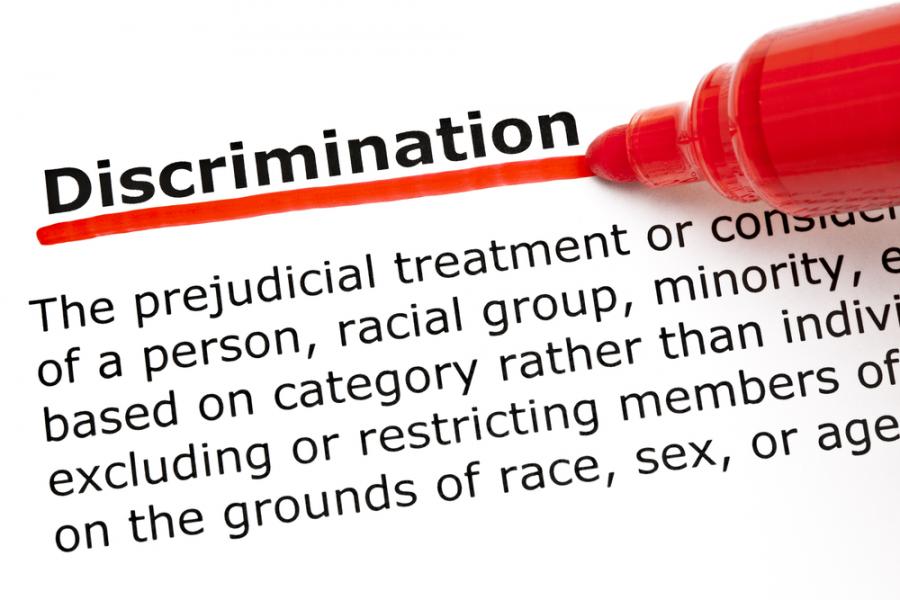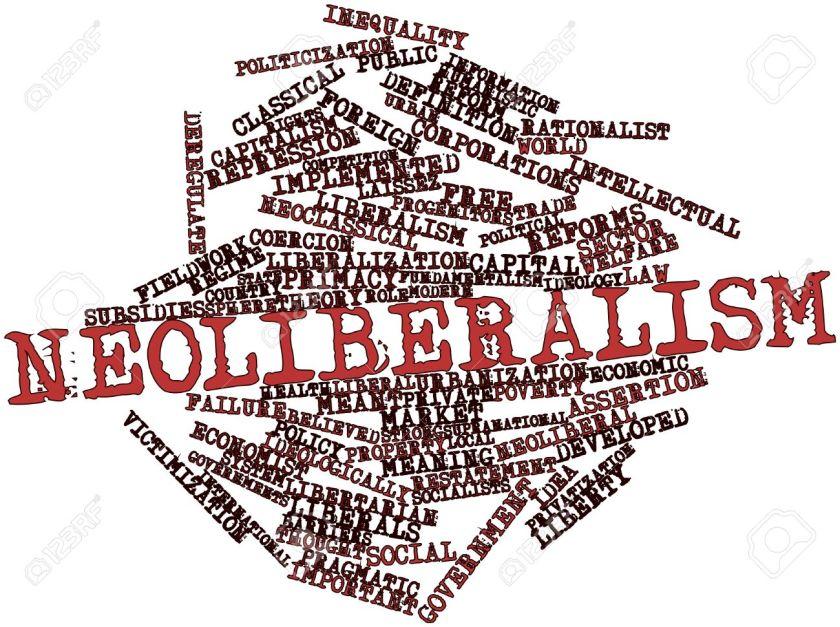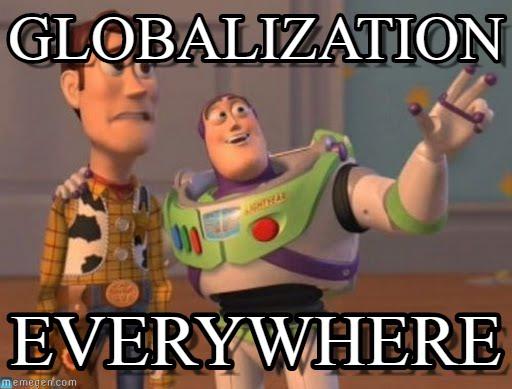
'Dutch only at work’ : Discrimination or reasonable?
Language requirements at work: a form of discrimination or reasonable selection? The following article provides an analysis that helps to determine your opinion regarding this matter.
What about the Dutch at work policy?
When recently looking for a job, I noticed that all vacancies for civil servants were in Dutch. It was not simply because the job openings websites were in Dutch, but also because they were looking for Dutch speaking employees only. Some of the institutions very explicitly demanded a fully adequate proficiency in Dutch. These demands make one wonder, whether such criteria should still be allowed in the globalized time of today.
The policy regarding language requirements at work has no clear-cut rules in the Netherlands. The constitution of the Kingdom of the Netherlands says that all persons in the Netherlands shall be treated equally in equal circumstances. Discrimination on the grounds of religion, belief, political opinion, race or sex or any other grounds whatsoever shall not be permitted. Discrimination, therefore, is not making a distinction as such, but rather making a forbidden distinction. This means that there is a difference within the concept of distinction. The Equal Rights Amendment describes this difference as follows:
- Direct distinction: treating someone differently because of personal characteristics. This is always forbidden, unless the law makes an exception.
- Indirect distinction: if a neutral provision, rule or practice has specific consequences for a group of people with one of the characteristics or properties mentioned in the constitution in comparison with others. This is also prohibited, unless there is an objective justification, for example when a job is too dangerous for pregnant women.
A certain distinction is allowed when there is an objective justification. An objective justification is very clear in some cases, for example when applying for a job as a bus driver when you don't have a driver's license. However, in the situation of language proficiency, this becomes questionable. When is it justified to reject an applicant based on one's language skills? Let's first take a look at three examples of jobs that at first sight seem to represent an objective justification of distinction when it comes to language:
- Police officer - a police officer in the Netherlands having a lack of competence in Dutch can lead to dangerous situations; for example when she or he cannot communicate with citizens in case of an emergency.
- Receptionist - a receptionist who is unintelligible on the telephone, because of his or her foreign accent for example, cannot fulfill the tasks of the job properly.
- Team manager - not being able to communicate with the members of the team, makes it impossible to manage them.
Examples such as these look objective, but are they really? When is someone a fully proficient speaker? Such questions are at the basis of this article, in which I explore the issue of language requirements in job application procedures. This will be analyzed by looking at different evolutions of society. The complex interplay of economic, political, technological and social evolutions leads to ideological shifts and, therefore, helps one to understand the reasoning behind language demands such as these.
The effects of neoliberalism
One of the evolutions that influenced the value of the Dutch language is neoliberalism. This is a way of governing led by the idea of the free market. In this society, people’s value is determined by their ‘capital’. Foucault (2008) explains this by using the illustration that the economy is, in fact, a game. Everyone should be able to play along with this game. However, one can also ensure that he has a stronger position. According to this neoliberal rationality, the player is an entrepreneur, an entrepreneur of himself; he is his own producer and he is the source of his income. The player represents a human capital that can be used to earn an income (Foucault, 2008, p.236). This capital contains a (1) genetic human capital, consisting of hereditary elements (which may also work in someone's disadvantage), and (2) acquired human capital consisting of voluntarily acquired elements. The neoliberal government lays the focus on acquired human capital, which can be improved for example by investing in education. Following this rationality, the individual himself is responsible for obtaining a certain income. In today's society, because of their human capital, people are ranked according to both genetic (in the form of racism) and acquired human capital as 'good' or 'bad' citizens. If someone does not have a job, for example. this is seen as ones 'own fault' and this person may be considered lazy or irresponsible.
When we use this approach, how can we classify something as a language? Which language one speaks, is in most cases a result of their place of birth. Of course, one can also learn a language at a later age, however, this will never be your mother tongue. Therefore, it is difficult to say whether a language is a genetic or an acquired human capital, since it can be a combination of both. Nevertheless, it is clear that speaking a language is an aspect of the human capital.
Bourdieu makes some similar remarks with his notions of the linguistic habitus (Bourdieu, 1981) and the linguistic marketplace (Bourdieu, 1991). The habitus means that there is a ‘‘set of dispositions” at play, that lead the manner of action and reaction of the individual. This results in both practices and attitudes and is derived from the social background of the individual, leading to similarities in people from the same social class (Spolsky, 2004). With the marketplace Bourdieu (1991) indicates that individuals function in a field or market, struggling generally to preserve or improve their positions. A combination of both habitus and marketplace governs language behavior as well as judgements about the value of languages and styles (Spolsky, 2004).
The sources of the capital consist of the social assets a person has (e.g. education, intellect, language) and that have the capacity to promote social mobility in a stratified society. Therefore, the knowledge of a language can be considered as one’s linguistic capital, with which one trades on the linguistic market (Bourdieu, 1991). A good mastery of the Dutch language is viewed as pivotal to success and can ‘upscale’ one’s life by triggering positive consequences (Spotti, 2011; Spotti & Kurvers, 2015). When the knowledge of a particular language, or a particular social or geographical variety of a language, does not ‘sell’ well, it can be expected that this language (or variety) is going to lose its market share (Tandefelt, 1992). In other words, Bourdieu saw language as a market of symbolic (although real) capital and power, with people striving for profit and with some people structurally having less capital than others (Blommaert, 2010). This ‘bad’ spot on the marketplace can cause language shift into a language that is more easily 'sold'.
The sources or the capital consist of the social assets a person has (e.g. education, intellect, language) and that have the capacity to promote social mobility in a stratified society.
Both of these studies reveal the tendency of present day society to commodify citizenship. In other words, people are 'dehumanized' and presented as an enterprise consisting of human capital. They are, as it were, a kind of merchandise whose market value is seen as truth. So there is a differentiation of citizens between those with high asset value and those with low asset value. The person with a low asset value is, according to neoliberalism, held responsible because "one could have invested in his acquired human capital".
Nationalism
The neoliberal state also uses nationalism to create the unity of the nation. In nationalism the importance of the nation, with its traditions, values, and norms, is paramount. That nation, with its leaders and its people, must at all times be preserved. As a result, the freedom of the individual is subordinated to social discipline and the moral order of the nation (Maly, 2018). This is an ideological phase in which people do not differ so much ethnically or biologically, but differ in culture. This culture consists of, among others, the national language. Hence, there is a strong connection between being Dutch and speaking Dutch. Being able to speak the national language functions as a prerequisite for being considered a citizen.
Hence, there is a strong connection between being Dutch and speaking Dutch.
Why are these evolutions, neoliberalism and nationalism, important in understanding the reasoning behind language requirements at work? It shows the origin of today’s society in which one expects another to obtain the skills necessary for a job, like being able to speak Dutch fluently, and when one does not have these skills, then this is one's own fault and it is therefore justified to reject the job applicant. Nevertheless, one can argue whether this idea of ‘one state, one language and one homogenous group of people’ is still applicable in the current situation. The next section will demonstrate this skepticism by using the notion of superdiversity.
Superdiversity and its implications
Superdiversity is a phenomenon caused by globalization. Globalization means that there is an interconnectedness of large parts of the globe within systems of political, economic and cultural flows and networks. It is important to note that globalization is not a new phenomenon; large parts of the world were already connected by networks and flows a long time ago. Nevertheless, the current stage of globalization leading to superdiversity is unique. Superdiversity is a term coined by Steven Vertovec (2010) that indicates that there is a ‘diversity within diversity’. This superdiversity has increased by two forces (Blommaert, 2012).
The first force is the ending of the cold war in 1991, when boundaries were erased, which led to a fundamental change in the ‘order’ of the world. After the ending of this conflict, it was not only possible to interact with people from the (no longer existing) other camp, but also to move to the other camp. In general, more people from more places migrated into more and different places and for more and different reasons and motives than before (Vertovec, 2010), which resulted in more diverse ethnic, social, cultural and economic societies almost everywhere (Blommaert, 2012). Hence, superdiversity is characterized by an immense increase in the categories of migrants (Vertovec, 2010). In other words, we can no longer only use the ‘big’ variables (ethnicity, nationality, religion, social class and so forth) in order to describe a group (Blommaert, 2011).
The governments ended up in a crisis: how do they deal with a society that consists of a rapidly changing, unstable, complex and hybrid social reality?
The second force is the invention of different technological products, like technologies of movement and the Internet, which made mobility easier. This new form of long-distance technology that was invented around the same time as the ending of the cold war (Blommaert, 2012) made it possible to communicate with people from other places without having to move physically. This causes that people can be in two different places at the same time, i.e., transnationalism (Vertovec, 2007). Transnationalism is the process by which immigrants build social fields that link together their country of origin and their country of settlement (Schiller, Basch & Blanc-Szanton, 1992). One can now be anywhere and still be in another network (Vertovec, 2004).
As a result of globalization, Dutch society nowadays consists of different communities, networks, and flows that are unpredictable and unknown. Where there once was a clear image of what a Dutch citizen is, superdiversity has made such images invalid. This shift resulted in the need to look beyond the boundaries of the existing analytical categories of the social sciences. In other words, the assertion of ‘one nation, one language and one homogenous group of people’ does not describe the reality anymore. The number of languages spoken in the country, for example, shows that Dutch citizens do no longer exclusively speak Dutch.
Globalization everywhere
These new demographic and social patterns leading to superdiversity had major consequences for the social sciences, but also for politics. Governments ended up in a crisis: how do they deal with a society that consists of a rapidly changing, unstable, complex and hybrid social reality? In other words, the globalization processes have made nation states, their static cultures and their separated languages weaker than ever. Additionally, questions about the capacity of nation state bureaucracies to manage migration have been raised. The national order is now preserved as something being under threat, which consequently resulted in the setting up of other kinds of borders.
Society took a new policy direction towards ‘diversity’, which can be called post-multiculturalism. Gozdecka, Ercan & Kmak (2014) describe that post-multiculturalism seems to run parallel with neoliberalism. In post-multiculturalism, the focus is on safety, social cohesion, and citizenship. By focusing on these concepts a coherent and homogeneous concept of citizenship is realized again. There is, as it were, a representation of a 'right' and 'good' citizen who is linked to certain characteristics. Someone who behaves according to the norms of Dutch culture and speaks Dutch may be perceived as a ‘good’ citizen, for example, whereas someone who does not abide to these conditions may be considered a 'bad' citizen. The approach to diversity is, therefore, more about gaining access to the practices and strategies of the identification of people than about liberating those who are discriminated against or marginalized on the basis of some aspect of their identity, physical dispositions or lifestyle (Gozdecka, Ercan & Kmak, 2014). An identity may be deduced by one’s level of proficiency in a language, for instance. However, whether someone is proficient is not an objective given. The next section will deal with this issue.
When am I a proficient Dutch speaker?
The implications of globalization for language and sociolinguistics are that one cannot look at language and society, but must look at language in society. Language has changed in the age of globalization. As soon as linguistic semiotic products start traveling across the globe, they travel across different orders of indexicality, and what counts as a ‘good language’ in one place can easily become a ‘bad language’ in another (Blommaert, 2010). In other words, the usage of language and the meaning of a language depend on factors such as time and place, e.g., the prestige and meaning of a language can be different at different places. The mobility of certain sociolinguistic resources invokes different histories of meaning and function, and intertextually projects these historical features onto current acts of communication (Blommaert, 2010). When they are used in different places, they draw on locally available histories. As a result of certain incidents, the discussion of which is beyond the scope of this article, speaking English, for example, has a higher prestige and is more valued than speaking Arabic.
This means that one is or will become what one speaks, and speaking transforms one into what is indexically suggested by the way of talking.
Moreover, as Agha (2007) explains, whether one is perceived as a proficient Dutch speaker can be determined by small and very specific bits of language, e.g. an accent. These are called ‘meta-pragmatic judgements’: the way people are framed in certain categories, like proficient or not proficient. Blommaert (2010) explains that, since the dislocation of language from the fixed position in time and space attributed to them, language needs to be seen as a phenomenon that occurs on different scale-levels. Mobility across these different scales involves important shifts in function, structure, and meaning. These shifts contain the reordering of normativity: linguistic resources move through different orders of indexicality, and every move involves a different set of indexical potentials for resources (Blommaert, 2010). Orders of indexicality are stratified patterns of social meaning, often called ‘norms’ or ‘rules’, to which people abide when communicating (Blommaert, 2005; 2012). Therefore, this explains how the usage of certain semiotics results in an identity construction. For instance, someone speaking Dutch with an English accent may be perceived as a sophisticated person, while someone having a Turkish accent is negatively associated. Here, again, one can debate the significance of such identity constructions.
Silverstein (2006) makes a comparable observation with his notion ‘semiotic consubstantiality’. This means that one is or will become what one speaks, and speaking transforms one into what is indexically suggested by the way of talking. However, this is not an objective judgement since it is debatable whether one way of speaking is proficient Dutch and another isn't. It may be that one grammatically speaks perfect Dutch, but that one’s pronunciation deviates from the (subjective) norm of proper pronunciation. In other words, it creates the problem of enoughness: when are one’s language skills enough? Not being able to reach this level can get one excluded from certain things, such as a job.
Is implicit language policy fair?
To sum up these observations, in today’s Dutch society people who speak Dutch fluently are higher valued than those who do not. Speaking this language, when living in the Netherlands, is recommended since it can give one a better position in playing the economic game (neoliberalism by Foucault). However, Dutch is not a common language in the rest of the world. This means that if one is not born in the Netherlands there is only a small chance that one learns this language. Additionally, when not learning it at a young age, one can never become a native speaker. Even if one manages to learn the language at a later age, there is still the possibility that one’s pronunciation exposes that one is not a native speaker, which may endanger one's chances of getting a job. Furthermore, even though technological innovations have increased the opportunities for mobility, there are also people structurally having less “capital” than others, who cannot enjoy the positive sides of globalization. These people cannot comply with certain demands.
Besides, one’s language is not a display of one’s qualities.
Imagine a man who studied and worked in another country, but had to flee to a safer country as a result of war. In his home country, he worked as a manager of the whole marketing department of a big commercial business. He was very good at his job, however, it was not safe staying there, so he made the difficult choice to leave the country. When finally arriving in the Netherlands, he had to undergo all kinds of procedures but managed to get a visa (note: not everyone does). To get this, he had to learn the basics of Dutch, but this was not a problem for him, he had always been good at learning a new language. Considering he was used to working a lot, he started looking for jobs. He translated vacancies and applied to the ones he liked. However, he faced rejection after rejection. Since money became scarce, he had to adjust his expectations and started applying for jobs that he did not really like. However, he kept being rejected. He ended up taking a job as a bartender. It is not that he thinks less of bartenders, but he just wished he could perform the jobs that he knows he would be very good at.
If you judge a book by it's cover, you might miss out on an amazing story
The ones rejecting the imagined person above may not intentionally want to discriminate him, however, with requirements such as Dutch-only selection criteria, they implicitly do. There is no direct discrimination based on nationality, race or gender. Nevertheless, the requirement may indirectly still have a discriminatory effect. One can wonder whether it is okay to demand a certain language in the age of superdiversity. Besides, one’s language is not a display of one’s qualities. On the other side, it is understandable that some jobs require a certain language. Nevertheless, it is unfortunate that talents get wasted in the process and that people get excluded because of factors that may be out of one’s control. The ideal situation would be to offer people the possibility to improve their language skills while being on the job. However, this would be an unrealistic expectation because of practical and financial elements. I do believe that policies regarding this matter could try to encourage employers to hire because of qualities instead of predetermined elements.
References
Agha, A. (2007). Language and Social Relations. Cambridge: Cambridge University Press.
Appadurai, A. (1996). Modernity At Large. Minneapolis: University of Minnesota Press.
Blommaert, J. (2010). The sociolinguistics of globalization. Cambridge, UK: Cambridge University Press.
Blommaert, J. (2011). Language and Superdiversity. Language and Superdiversities. Special Issue Diversities Journal, 13(2), 1-23.
Blommaert, J. (2012). Chronicles of complexity: Ethnography, superdiversity, and linguistic landscapes. Tilburg Papers in Culture Studies 29.
Bourdieu, P. (1981). Structures, strategies, and habitus. French sociology, rupture, and renewal since 1968. New York: Columbia University Press.
Bourdieu, P. (1991). Language and symbolic power. Cambridge, UK: Harvard University Press.
Bourdieu, P. (2001). Uniting to better dominate. Items and Issues 2(3-4), 1-6.
Foucault, M. (2008). Birth of Biopolitics: Lectures at the Collège de France 1978–1979. Edited by M. Senellart, translated by G. Burchell. Basingstoke: Palgrave Macmillan.
Gozdecka, D.A., Ercan, S.A. & Kmak, M. (2014). From multiculturalism to post-multiculturalism: Trends and paradoxes. Journal of Sociology, 50(1), 51-64.
Pinxten, R., De Munter, K. (2010). De culturele eeuw. Basisboek culturele antropologie. Leuven/Den Haag: Acco.
Schiller, N. G., Basch, L., & Blanc-Szanton, C. (1992). Transnationalism: A new analytic framework for understanding migration. Annals of the New York academy of sciences, 645(1), 1-24.
Silverstein, M. (2006). Old wine, new ethnographic lexicography. Annual Review of Anthropology, 35: 481-496
Spolsky, B. (2004). Language policy. Cambridge University Press.
Spotti, M. (2011). Ideologies of success for Superdiverse Citizens: the Dutch Testing Regime for Integration and the Online Private Sector. Language and Superdiversities. Special Issue Diversities Journal, 13(2): 39-52
Spotti, M., & Kurvers, J. (2015). ICT based applications for civic integration in The Netherlands. In J. Simpson & A. Whiteside (eds.), Adult language education and migration: Challenging agendas in policy and practice. London: Routledge, 187-199.
Tandefelt, M. (1992). Some linguistic consequences of the shift from Swedish to Finnish in Finland. In W. Fase, K. Jaspaert & S.Kroon (eds.), Maintenance and loss of minority languages, Amsterdam: John Benjamins, 149-168.
Vertovec, S. (2004). Migrant transnationalism and modes of transformation. International Migration Review, 38(3): 970-1001
Vertovec, S (2007). Super-diversity and its implications. Ethnic and Racial Studies, 30(6).
Vertovec, S. (2010). Towards post-multiculturalism? Changing communities, contexts and conditions of diversity. International Social Science Journal, 199, 83-95.



